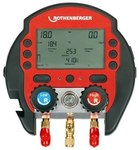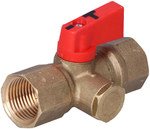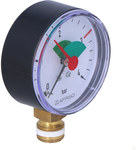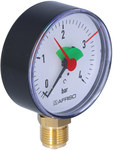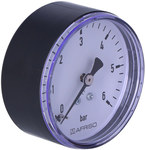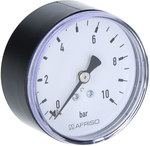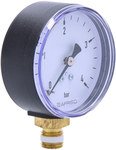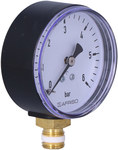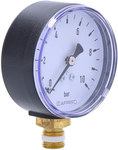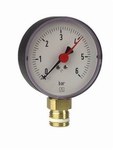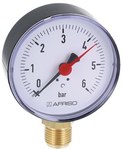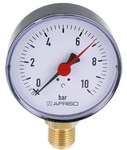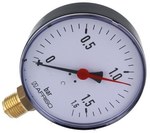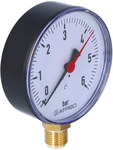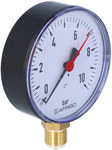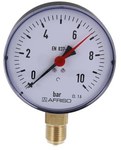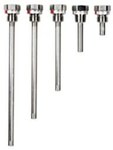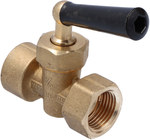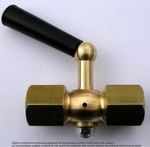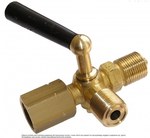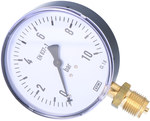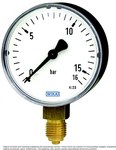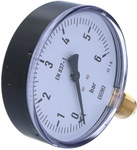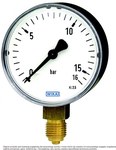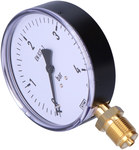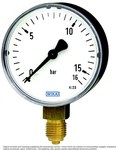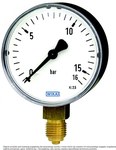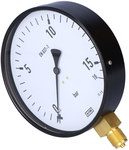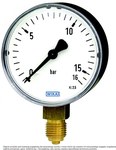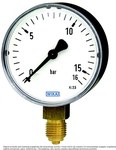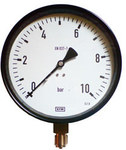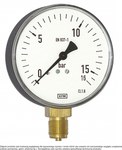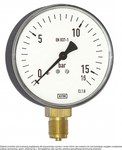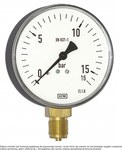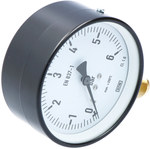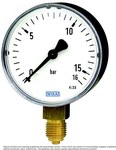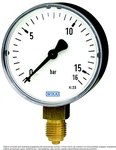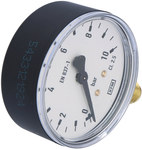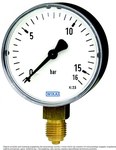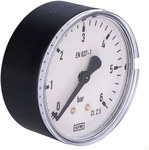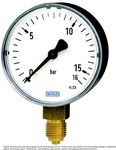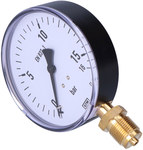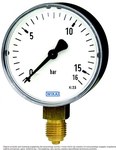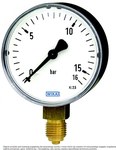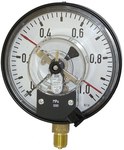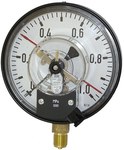Manometers
(68)
At Onninen we offer a comprehensive range of pressure gauges that meet the requirements of professionals in the installation and industrial sectors. Our range includes devices from renowned manufacturers that are characterized by high precision, reliability and durability. Pressure gauges are available with various measuring ranges, accuracy classes and technical specifications, adapted to the specifics of various installations and industrial processes.
What are manometers used for?
Pressure gauges are an essential element of pressure control and monitoring systems in many industries. Their use is essential in installations:
heating,
refrigeration,
hydraulic
pneumatic.
In industrial processes, pressure gauges enable precise pressure control, which translates into production efficiency and installation safety. They are also essential in the diagnostics and maintenance of machines and devices, allowing for the quick detection of irregularities in the operation of pressure systems.
What is a manometric measurement?
Gauge measurement refers to the measurement of pressure relative to atmospheric pressure, which is the standard in most engineering applications. Positive values indicate pressure above atmospheric pressure, while negative values indicate negative pressure. In engineering practice, the most common units used are bar, PSI, and kPa. Knowledge of the principles of gauge measurement is very important for the correct interpretation of readings and the efficient management of pressure systems.
It is worth emphasizing that manometric measurement is different from absolute pressure measurement. Absolute pressure takes into account atmospheric pressure and always has a positive value, while gauge pressure can take negative values. This difference is quite important in many industrial applications, especially in processes requiring precise control of negative pressure. The accuracy of manometric measurement depends on several factors, including the accuracy class of the manometer, its calibration and the environmental conditions in which it operates. In advanced applications, temperature compensation is often used to minimize the effect of temperature changes on measurement results.
Types of manometers
Onninen's offer includes a wide selection of pressure gauges adapted to various applications:
Dial gauges - standard solution with high reliability and ease of reading. Available in vibration-resistant versions, ideal for industrial applications.
Digital pressure gauges - offering advanced functions such as data logging, programmable alarms and the possibility of integration with automation systems.
Glycerine manometers - ensuring stable readings under conditions of strong vibrations and pressure pulsations.
Differential pressure gauges - enabling measurement of the pressure difference between two points of the system, which is crucial in many industrial processes and filtration systems.
Precision manometers - characterized by the highest accuracy, indispensable in laboratories and advanced production processes.
Gauge pressure - the most important information
Gauge pressure, defined as the difference between the measured pressure and atmospheric pressure, is of fundamental importance in engineering practice. It is crucial for process control and ensuring the safety of installations. It is worth remembering the relationship between gauge pressure and absolute pressure: Absolute pressure is the sum of gauge pressure and atmospheric pressure.
When selecting a pressure gauge, special attention should be paid to the measurement range, which should be adequate to the expected pressure values in a given application. A range that is too small can damage the device during sudden pressure surges, while a range that is too large can negatively affect the accuracy of readings at low pressures.
It is also important to consider the compatibility of the pressure gauge with the measuring medium. Depending on the application, the use of diaphragm separators or special sealing materials resistant to aggressive substances may be required.
The accuracy class of the pressure gauge should be selected based on the requirements of the process. In critical industrial applications, pressure gauges with an accuracy class of 0.6 or higher are often used, while in less demanding applications, gauges with an accuracy class of 1.6 or 2.5 may be sufficient.
At Onninen, we offer not only a wide selection of pressure gauges, but also expert technical advice. Our experts will help you choose the optimal solution, taking into account the specifics of your installation and processes. We also offer support in the calibration and service of pressure gauges, which allows you to maintain high measurement accuracy throughout the entire service life of the devices.
We invite you to familiarize yourself with our range of manometers and take advantage of the knowledge of our specialists. At Onninen you will find reliable measurement solutions that will contribute to increasing the efficiency and safety of your installation.
